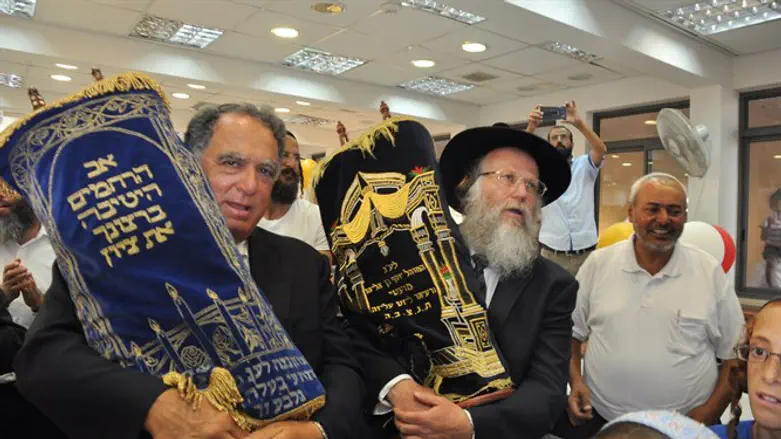
JEWISH SAINTS
Q. Why don't Jews have saints like the Catholics?
A. Jews do not have saints in the Catholic sense of being a person who has performed a miracle.
What Judaism reveres are giants of the spirit whose lives have been devoted to living for God and His Torah.
No-one needs to make official application to have such people canonised. It is the people as a whole, and history, which grants them their status.
There are also people who have sacrificed their lives for God and Judaism. We do not allocate the term "saint" to such individuals though we call them "k'doshim" and speak of their "Kiddush HaShem".
RESPONDING TO INTERMARRIAGE
Q. In an open society there is bound to be some intermarriage. What can we do about it?
A. Intermarriage statistics in some countries give rise to alarm that the Jewish people will die out.
Judaism is not going to lie down and die, but we need to encourage people to feel certain that their destiny is within Judaism and the Jewish people.
It means more Jewish education, more Jewish experience, more enjoyment of living Jewishly, and more conscious choice of the Jewish option.
It’s never going to be easy. People can and do meet non-Jews and find things in common, and friendship leads to love and marriage. Sometimes the Jewish person feels alone and can’t find a Jewish partner.
It is unfair to the children of the marriage to say they can choose for themselves when they grow up whether they want Judaism or not; by then the circumstances of the environment will have taken over.
It is irrational for parents to scream at their child about not marrying out if the children have not had a home example of Jewish joy, relevance and reasonability.
Parents have to start when their children are babies to live by what I have called the Jewish Option.
The community doesn’t solve these problems by ignoring it or ostracising people or by opposing conversion.
BLESSINGS ON BOOKS
Q. Do Jewish books get a blessing before they are printed?
A. Many books open with the commendation or blessing of a great scholar or scholars.
In the case of rabbinic books this kind of commendation is called a "Haskamah", an approval or approbation.
In 16th century Italy the rabbis meeting at Ferrera decided that Hebrew books had to be approved by three rabbis and a layman prior to publication, with the aim of preventing offensive material being published and causing dissension in the community.
Modern-day rabbinic writings often carry the Haskamah of one or more leading authorities as testimony to the religiosity and expertise of the author.
Not all Jewish books bear a Haskamah but the same purpose is often served by a book launching in which a leading personality commends the book to the public.
